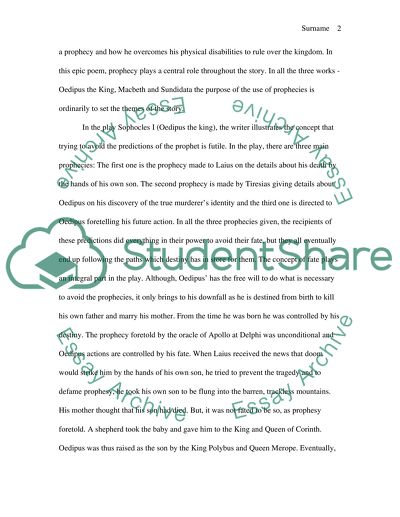Cite this document
(“The Prophecies between the Works of Macbeth, Sophocles I (Oedipus the Essay”, n.d.)
The Prophecies between the Works of Macbeth, Sophocles I (Oedipus the Essay. Retrieved from https://studentshare.org/literature/1439906-the-prophecies-between-the-works-of-macbeth
The Prophecies between the Works of Macbeth, Sophocles I (Oedipus the Essay. Retrieved from https://studentshare.org/literature/1439906-the-prophecies-between-the-works-of-macbeth
(The Prophecies Between the Works of Macbeth, Sophocles I (Oedipus the Essay)
The Prophecies Between the Works of Macbeth, Sophocles I (Oedipus the Essay. https://studentshare.org/literature/1439906-the-prophecies-between-the-works-of-macbeth.
The Prophecies Between the Works of Macbeth, Sophocles I (Oedipus the Essay. https://studentshare.org/literature/1439906-the-prophecies-between-the-works-of-macbeth.
“The Prophecies Between the Works of Macbeth, Sophocles I (Oedipus the Essay”, n.d. https://studentshare.org/literature/1439906-the-prophecies-between-the-works-of-macbeth.


